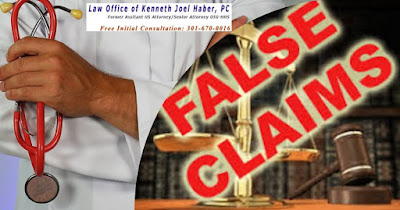Understanding Healthcare Fraud Prosecutions
Healthcare fraud simply refers to an act that intends to defraud a healthcare program of the Government. An act or an omission could be violative of the various laws regulating healthcare fraud in the US. However, the key piece to each one of these trials is the intention, and only an experienced lawyer for doctors can help exonerate you from any charge of healthcare fraud.
Common examples of healthcare fraud
Common examples of healthcare fraud include but are not limited to kickbacks, ghost patients, services not rendered, up-coding services, inflation of cost reports, bundling and unbundling, financial interest that is improper, false certification, etc.
How to recognize you are accused
Receipt of a healthcare audit request is a sign that you are being investigated for healthcare fraud. A Civil Investigative Demand or a CID is another sign. A more obvious sign is when you are subpoenaed by the Department of Health or when the Department of Justice (DOJ) issues a grand jury subpoena against you. These signs reflect the early stages of prosecution. In the event that the case is already going full steam, you will receive search warrants or indictments. Only an experienced lawyer for doctors can give you sound advice when faced with any of the above scenarios.
Onus is on the accuser
When a medical practitioner is accused of having engaged in healthcare fraud, it is the accuser who should prove the allegation before the courts of law. The burden of proof or onus rests upon the Government, the de-facto accuser in every case. The job of the defense is two-folded. Firstly, the healthcare defense lawyer should present before the Court why the accused should not be convicted, and secondly, the loopholes in the prosecution’s case should be brought to light. A combination of these two makes for a very strong defense.
Penalties for healthcare fraud
Laws that govern healthcare fraud impose heavy penalties on those found guilty. Those convicted can have fines that extend to $250,000 imposed on them or be sentenced to 10 years imprisonment or both. Good defense is, therefore, a necessity.



Comments
Post a Comment